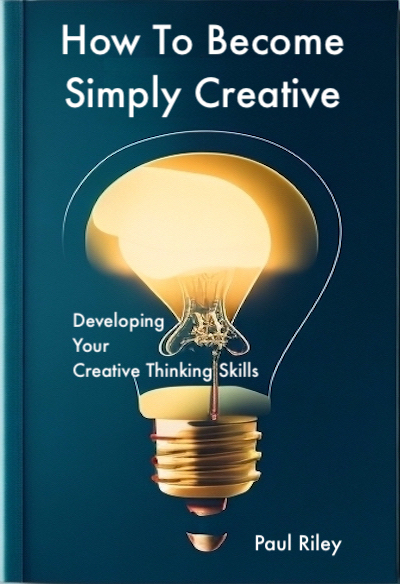How To Become Simply Creative
Creative Thinking and Storytelling
Creativity is the production of new ideas, while innovation involves implementing those ideas. Creative thinking enables human beings to imagine things that do not exist and through individual or collective action manifest them in the real world. Many people consider these qualities to be uniquely human and central to our evolutionary success.
For thousands of years we have passed on knowledge through stories, enabling people to achieve far more together than they could as individuals. The stories that we create about ourselves, each other and the world shape our sense of who we are and the reality in which we exist. Stories of the past, present and imagined futures shape our human society.
People living in ancient civilisations often believed in divine inspiration, discovery or imitation, rather than creativity as we understand it today. Practical activities such as drawing, painting and crafting can help us to develop our creativity. Being open to new ideas can reveal new perspectives, deepen our understanding and lead to fresh insights.
The events of history reflect the outcome of competing narratives formed within and shared between human minds over many centuries. However, long established traditions have been challenged as people try to adapt to our rapidly changing world. This has led many to seek stories that explain the world in terms they can apply to their own life.
When writing How To Become Simply Creative, my aim was to explore the nature of creativity, the creative thinking process and why some people appear to be more naturally gifted than others. There is consideration of how the way in which you think about yourself and the world, approach work and organise your life might help you to become more creative. This eBook also looks at how the creative arts and practical crafts could help you to develop your creative thinking skills.
Login or Join to download this free eBook, in ePub or Mobi format.

Creative Thinking and Artificial Intelligence
People have long voiced concerns about machines replacing them in jobs that involve routine tasks, but creativity was considered to be a uniquely human ability. However, knowledge and creative workers now fear that artificial intelligence could also impact their ability to earn a living. This has led to calls for regulations protecting the rights of people whose creative work is used to train generative AI.
Managed ethically, AI might bring many benefits to society, but misuse of the technology and failure to put in place safeguards could cause great harm. People often anthropomorphise inanimate objects and this could lead them to place too much trust in unthinking and unfeeling AI. We should resist the temptation to project human qualities onto machine intelligence. We should not allow AI to determine the narrative of our human story.
The ability to understand and express creatively the human experience is something that machines cannot and might never achieve. Generative AI has the potential to be a useful tool or assistant, but the content it produces is derived from a composite of work created by people. Lacking any internal motivation or self directed agency, AI depends upon the instructions and data provided by human beings.
The Industrial Revolution led to mass production, yet people still appreciate the work created by artists and artisans. Computers can defeat the best human chess players, yet people still prefer to watch other people play. Developing your own creative thinking skills beyond what AI is capable of simulating, could help you to create work that will resonate deeply with other people. Ultimately it is this human connection that people seek.
